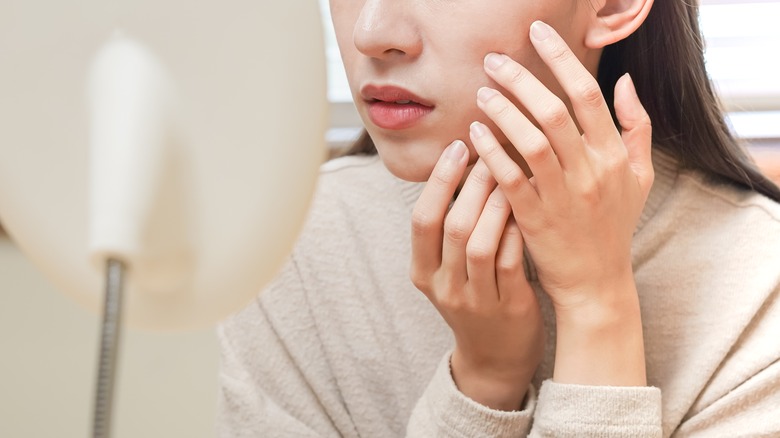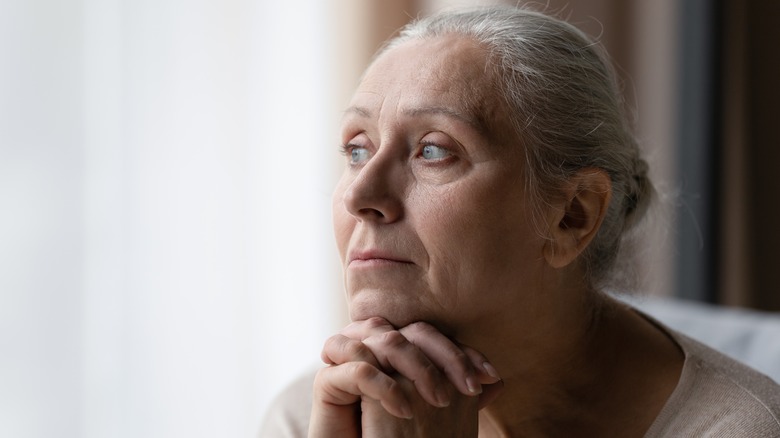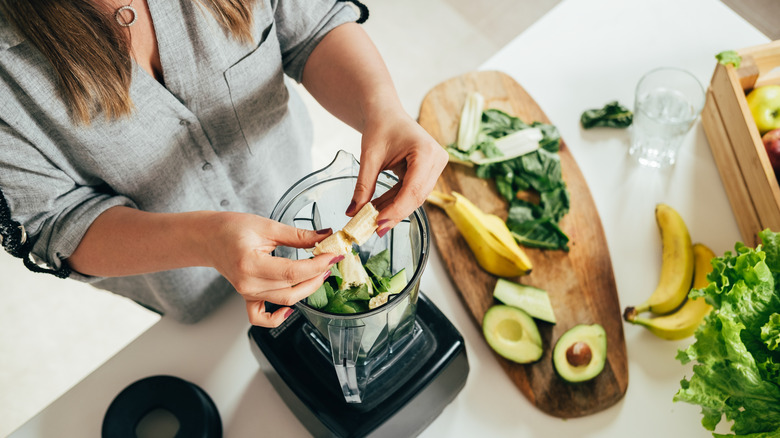Oh Great, Another Fancy Skincare Term. What In The World Is Glycation?
Is it just us, or does it feel like every other day there's a new skincare term coming out that we need to remember? Sure, skincare is ultimately a science, but all of these new terms can be really difficult to track sometimes. Regardless, it's hard to deny the importance of understanding how to take better care of our bodies.
One of these terms that seem to be popping up more lately is glycation, which already sounds like a lot of skincare-related words we've heard before. However, when we really get into the nitty-gritty of glycation, it's actually a lot more complex than it might seem on the surface.
"Glycation is a naturally-occurring chemical reaction that causes sugar molecules such as glucose or fructose to bind to proteins and lipids throughout the body, including the skin," wrote dermatologist Leslie Baumann in a blog post. "When this occurs, the proteins and lipids involved in the glycation process become damaged and are therefore unable to perform their normal functions properly."
Why knowing about glycation matters
The definition given above might sound like a standard scientific hodgepodge, but it does shed important light on a common skincare problem. These sugar molecules, called advanced glycation end products (AGEs), often bind themselves to your skin's collagen.
This bonding results in other molecules being unable to reach the collagen, thus depriving the skin of important nutrients. Skin, therefore, begins to sag and age. Skincare company Germaine de Capuccini also writes that glycation can cause wrinkle formation, reduced suppleness, and a loss of natural skin radiance.
If you've ever felt like your skin has begun aging no matter what skincare routine you do, glycation could be the culprit. According to Dr. Sanchari Sinha Dutta at News Medical, glycation can be caused by improper UV radiation prevention, like not putting on sunscreen when you go outside. It can also be caused by your individual health habits, such as your diet.
What you can do to alleviate glycation
What's important to understand is that you cannot prevent glycation from occurring. While there are external factors that help progress the process, there are also many internal and natural factors that make it hard to curb completely. This is an important distinction to make because so much anti-aging rhetoric in the skincare community fails to take the inevitable into consideration.
Of course, this doesn't mean that there aren't any ways for you to alleviate the process; You are able to slow down glycation in a few different ways. There are skincare products that have begun hitting the market, according to skincare company Minimalist on their blog. These are said to contain promising ingredients such as Vitamin B3 and retinol.
However, you shouldn't rely on just creams and products to give you the results you need. Dermatologist Kenneth Mark told Byrdie that these changes can also start with your diet. He recommends reducing how much you eat high-sugar foods like white bread and pastries, as they help develop those pesky AGEs that cause glycation in the first place.
"Adopting an anti-AGE diet that's rich in antioxidants and low in sugar can help slow down glycation," he explained. Ultimately, it boils down to taking care of yourself in a way that goes beyond skin deep, something that the skincare community is hopefully beginning to embrace.


